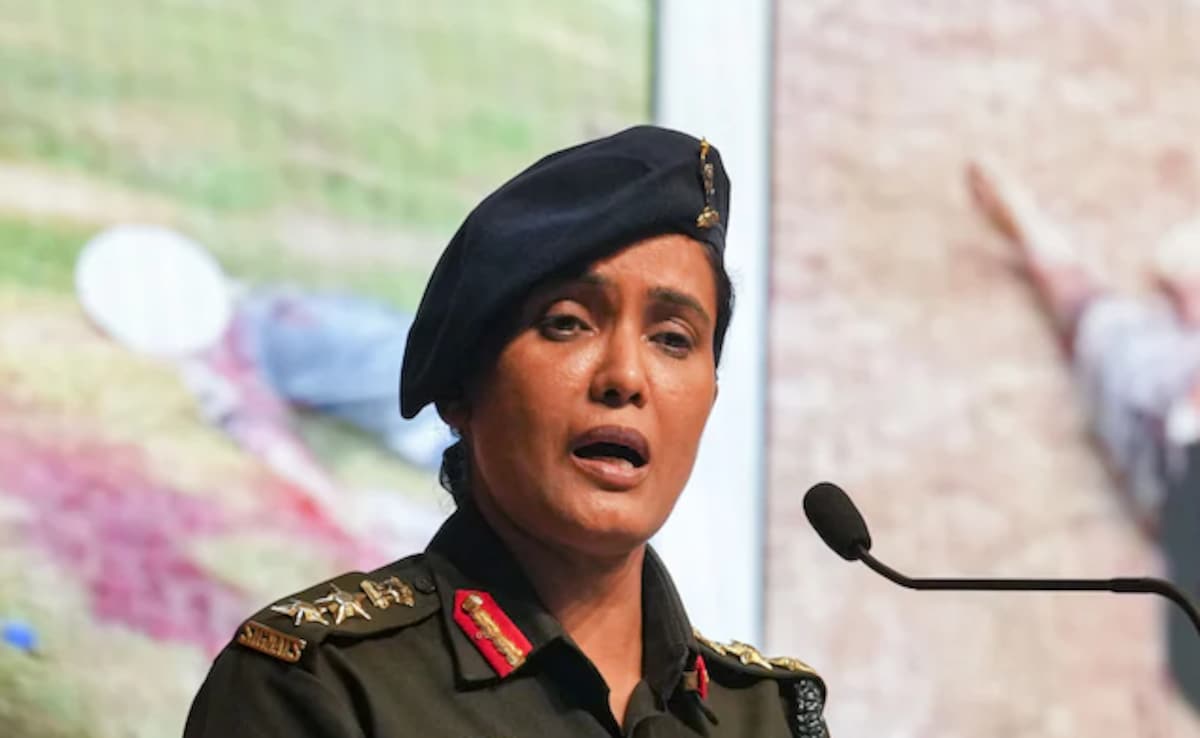A Historic Recognition of Women’s Contribution in the Indian Military
In a landmark moment for women in the armed forces, the Supreme Court of India lauded Colonel Sofiya Qureshi during its ruling on the Permanent Commission for women officers in the Indian Army. This recognition comes in the backdrop of Colonel Qureshi’s pivotal role in ‘Operation Sindoor,’ an operation that demonstrated the military’s capability to respond decisively to threats.
On February 17, 2020, the Supreme Court ruled in favor of granting Permanent Commission (PC) to women officers. This judgment dismantled the longstanding tradition of excluding women from command roles, asserting that such exclusion was not only indefensible but also unjustified in a modern military context. The court emphasized the need for women officers to have an equal opportunity to advance in their careers within the Army, marking a significant shift in policy that acknowledges the vital contributions of women in armed forces.
The Supreme Court’s ruling allowed for a reevaluation of how women are perceived within the military structure. Colonel Qureshi was mentioned specifically, as she stood alongside Wing Commander Vyomika Singh during the media briefing about Operation Sindoor. Her achievements were highlighted by the court, emphasizing her distinguished service and leadership.
Colonel Qureshi: A Pioneer Breaking Barriers
Colonel Sofia Qureshi, who serves in the Indian Army’s Corps of Signals, has made significant strides in a traditionally male-dominated field. As noted in the Supreme Court’s ruling, she became the first woman to lead an Indian Army contingent at the multinational military exercise, ‘Exercise Force 18.’ This event represents India’s largest foreign military exercise and aims to foster interoperability and peacekeeping among ASEAN nations.
In 2006, Colonel Qureshi served as a military observer during the United Nations Peacekeeping Operation in Congo, where her responsibilities included monitoring ceasefires and aiding humanitarian efforts in conflict-affected areas. Her exemplary service not only reflects her capabilities but also reinforces the argument for more inclusive roles within the army.
The Supreme Court’s acknowledgment of women officers’ contributions serves as a critical reminder that their dedication and sacrifices have been pivotal in protecting the nation’s integrity. The court noted that despite women serving alongside their male counterparts in various capacities, the persistent notion that they are less capable due to biological or social factors is fundamentally flawed and outdated.
Operation Sindoor: A Strategic Response
The recent Operation Sindoor, which Colonel Qureshi addressed during the media briefing, was launched in response to the April 22 attack in Pahalgam. The Indian armed forces successfully targeted nine terror sites in Pakistan and Pakistan-occupied Kashmir (PoK) as part of their strategic retaliation. The operation showcases not only the military’s capacity to respond effectively to threats but also the increasing involvement of women officers in critical operations.
The operation’s briefing, which took place just hours after the strikes, was led by Foreign Secretary Vikram Misri, who was flanked by Colonel Qureshi and Wing Commander Singh. This public acknowledgment of women’s leadership roles sends a powerful message about the evolving dynamics within the Indian military and reflects the broader societal changes towards gender equality.
Colonel Qureshi’s leadership is seen as a significant step forward in breaking gender barriers within the military. The report further emphasizes how the involvement of women in such high-stakes operations can lead to a more diverse and adaptable military force capable of facing modern challenges.
Women’s Empowerment in the Armed Forces
The evolution of women’s roles in the Indian Army is not just a victory for those serving today, but a profound shift in the future landscape of military leadership. The Indian Army has been making strides in enhancing gender diversity and ensuring equal opportunity for women officers. Several initiatives have been implemented, focusing on empowering women through education, leadership training, and operational roles previously deemed “inappropriate” for them.
The Supreme Court’s ruling is instrumental in paving the way for more women to take on roles that contribute to national security. While the legal framework is essential, the cultural shift within the military will play a crucial role in sustaining this progress. The continued contribution of women like Colonel Qureshi and others will inspire future generations to pursue careers in the armed forces without the constraints of gender bias.
Furthermore, nurturing an environment that encourages women’s participation in all facets of military operations will undoubtedly enhance the operational effectiveness of the Indian armed forces. Diverse teams are known to foster better problem-solving capabilities, adaptability, and resilience—qualities that are paramount in military operations.
A Call to Action for Gender Equality
The achievements of women officers like Colonel Qureshi underline the urgent need for continuous advocacy for gender equality within the military and beyond. As the Supreme Court ruling highlights, women have consistently proven themselves in challenging environments, and their contributions should be recognized and amplified.
The journey towards gender equality in the armed forces is a collective effort that necessitates collaboration between legal frameworks, military leadership, and societal mindset shifts. Educational institutions, policymakers, and military leaders need to work together to provide women with the resources and support they need to excel in military roles.
In conclusion, the recognition of Colonel Sofiya Qureshi not only celebrates her achievements but also ignites a broader conversation about the role of women in the military and society at large. The success of initiatives like Operation Sindoor, led by capable officers, underscores the importance of integrating gender diversity into every facet of military planning and execution.
For further reading on gender equality initiatives, visit[The World Economic Forum’s Gender Equality Report](https://www.weforum.org/reports/global-gender-gap-report-2021) and[UN Women: Gender in Peace and Security](https://www.unwomen.org/en/what-we-do/peace-and-security).
DISCLAIMER
We have taken every measure to ensure that the information in this article and on our social media platforms is accurate, verified, and obtained from reliable sources. For feedback or complaints, please contact us at info@hamslive.com.


